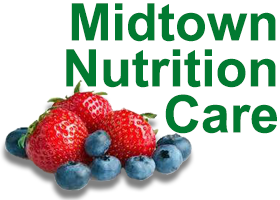THE LOW FODMAP DIET
The Low FODMAP diet is a diet designed to help reduce digestive symptoms caused by IBS (Irritable Bowel Syndrome). Research has found that up to 75% of people who suffer from IBS symptoms may benefit from a low FODMAP diet.
WHAT DOES FODMAP MEAN?
FODMAP means foods that contain any of the following sugars: Fermentable Oligosaccharides, Disaccharides, Monosaccharides and Polyols. These are sugars that aren’t absorbed well in your intestines, and therefore can cause symptoms of IBS for some people. Symptoms of poor digestion may include gas, bloating, pain and diarrhea.
WHICH FOODS ARE HIGH IN FODMAP SUGARS?
–Foods high in fructose. These include apple, fig, mango, pear, watermelon, asparagus, artichoke, sugar snap peas, high fructose corn syrup, honey and agave syrup.
–Foods containing lactose. These include milk, ice cream, yogurt, ricotta cheese and cottage cheese.
–Foods containing oligosaccharide fructans. These include wheat, onions and garlic.
–Foods high in galacto-oligosaccharides. These include legumes, pistachios and cashews.
–Foods high in polyols. These include apricot, blackberries, nectarine, peach, mushrooms and cauliflower.
WHAT TO EXPECT WHEN FOLLOWING A LOW FODMAP DIET
The diet contains 3 phases: elimination, re-introduction and personalization. To discover possible symptom-producing foods, you must track your food intake and resulting symptoms in detail.
–The initial phase is the elimination diet, in which all high FODMAP foods are eliminated. The initial phase typically lasts between 2-6 weeks depending on when relief of symptoms occur. If there is not relief of symptoms during that time, then continuing the diet is not recommended.
–If symptoms are improved, then in the next phase, known as the re-introduction or challenge phase, you reintroduce FODMAP containing foods, one at a time. This will identify if the re-introduced FODMAP food is a symptom-producer.
–The last phase is the personalization phase. In that phase high FODMAP foods which do not produce symptoms are added back to your everyday diet (sometimes in small amounts, as small amounts of a food may be tolerated, while large amounts of that food are not).
Most people with IBS will tolerate many or most FODMAP foods. Discovering which foods are well-tolerated, and those that are not, will enable you to have as little dietary restrictions as possible, while still managing symptoms.
